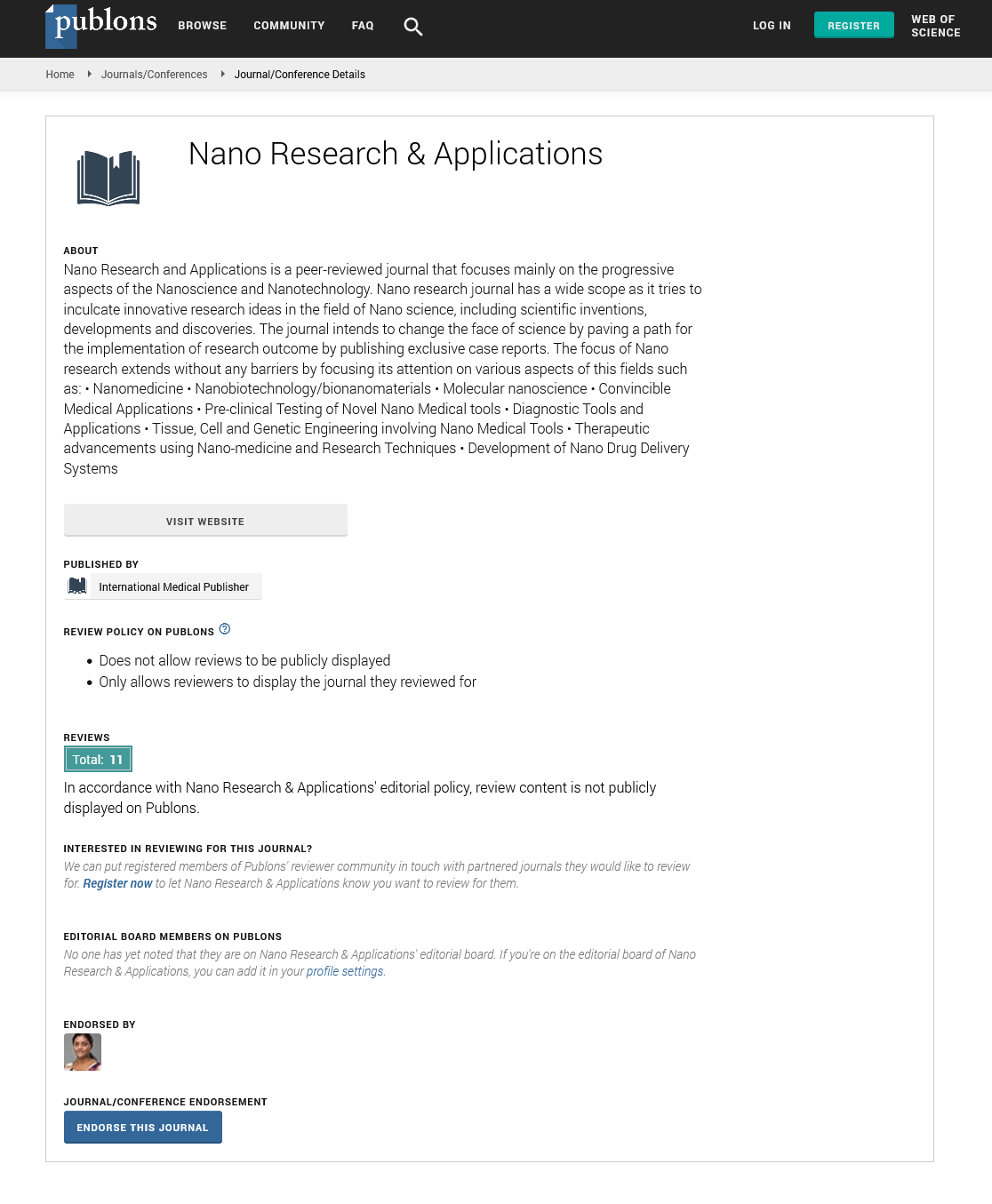ISSN : 2471-9838
Nano Research & Applications
Structural health monitoring based on wave propagation pattern in space frame structures
EuroSciCon Conference on Nanotechnology & Smart Materials
October 04 -06 ,2018 Amsterdam , Netherlands
Mohammad Tahaye Abadi
Aerospace Research Institute, Ministry of Science, Research and Technology, Iran
ScientificTracks Abstracts: Nano Res Appl
DOI: 10.21767/2471-9838-C6-024
Abstract
An important aspect of the smart structures concept is the automated structural health monitoring in various operational environments. The present research work focuses on a technique to identify damage sources in space frame structure. The first step is performed by solely analysing the acceleration time histories recorded from the space frame structure. The procedure selects a reference signal which is close to obtained signal from the signals recorded when the structure is undamaged. Second, a prediction model is constructed from the selected reference signal in the damaged structure. Then, the residual error is defined and used to identify damages in the structure. This approach is based on the evidence that if there were damage in the structure, the estimation model previously identified using the undamaged time history would not be able to replicate the newly obtained time series measured from the damaged structure. In addition to, the increase in residual errors would be maximized at the sensors instrumented near the actual damage locations. The performance of present technique is implemented using acceleration time histories obtained from a space frame structure
Biography
Mohammad Tahaye Abadi is currently serving as an Associate Professor of Mechanical Engineering. He received his PhD from Amirkabir University of Technology (formerly called Tehran Polytechnic), Iran in 2003. His research interests include composite materials, material characterization, viscoelastic materials, shock and vibration and structural health monitoring.
E-mail: abadi@ari.ac.ir
Google Scholar citation report
Citations : 387
Nano Research & Applications received 387 citations as per Google Scholar report
Nano Research & Applications peer review process verified at publons
Abstracted/Indexed in
- Google Scholar
- China National Knowledge Infrastructure (CNKI)
- Directory of Research Journal Indexing (DRJI)
- WorldCat
- Publons
- Secret Search Engine Labs
- Euro Pub
Open Access Journals
- Aquaculture & Veterinary Science
- Chemistry & Chemical Sciences
- Clinical Sciences
- Engineering
- General Science
- Genetics & Molecular Biology
- Health Care & Nursing
- Immunology & Microbiology
- Materials Science
- Mathematics & Physics
- Medical Sciences
- Neurology & Psychiatry
- Oncology & Cancer Science
- Pharmaceutical Sciences
